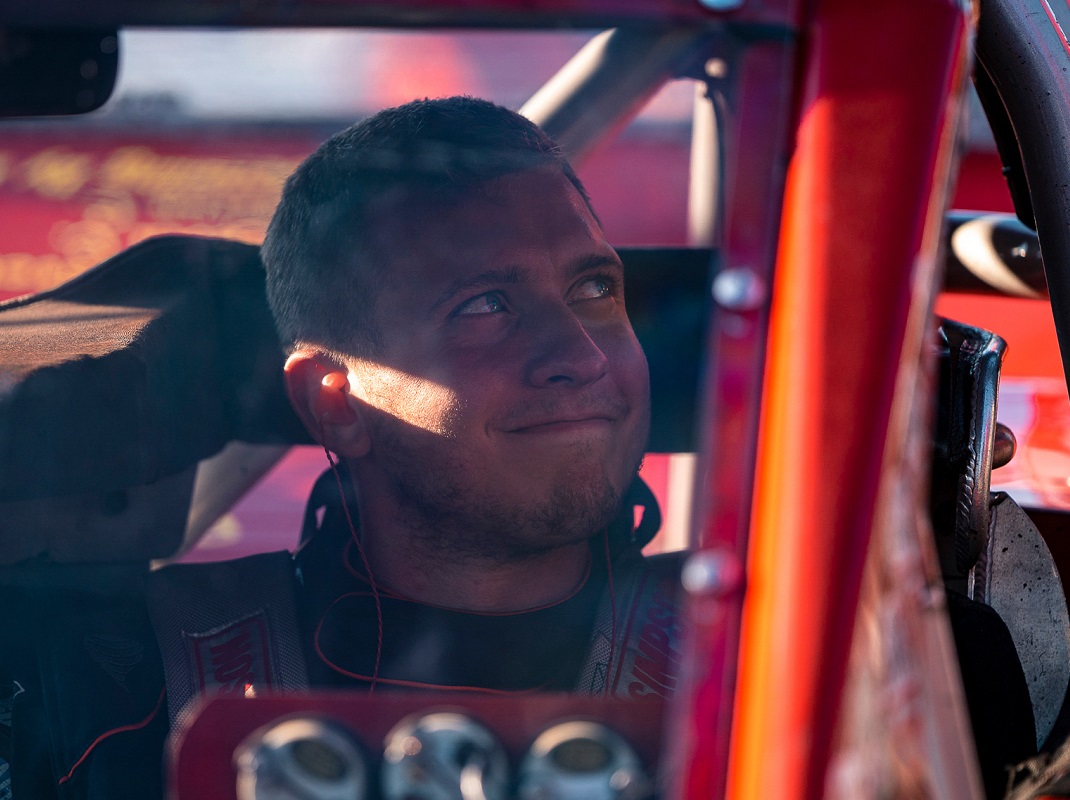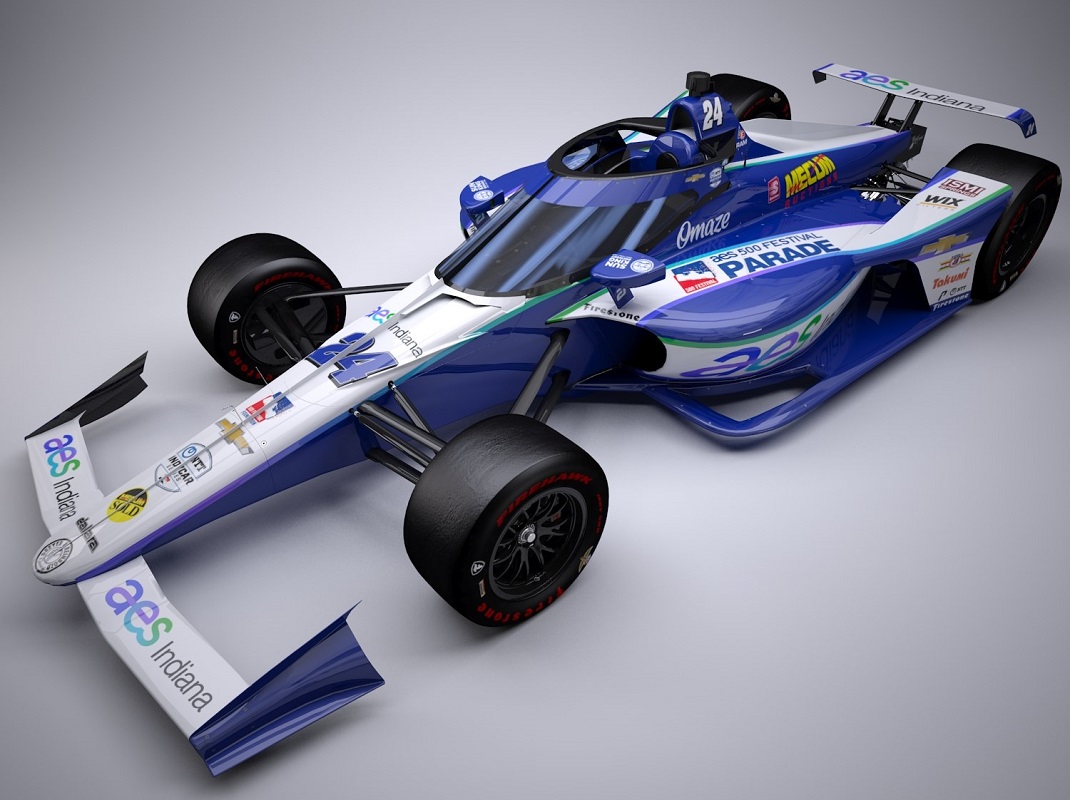CHARLOTTE, N.C. — Blog by Managing Editor Jacob Seelman for Race Chaser Online — Mia Fischer photo — Where were you, thirteen years ago?
8:46 A.M. I remember where I was. I was sitting at home; I was home sick from school, and my mom was reaching for the remote to turn the television off when the breaking news hit. The North Tower of the World Trade Center was struck.
The rest is history, as they say, and the tragic events of that day will be forever remembered by everyone who bore witness to or was affected by the events that took place.
The NASCAR community was as deeply shaken as anyone else in the country, and its drivers, crews and fans were all left wondering — as everyone else was — “Where do we go from here?”
“I remember the morning of Sept. 11 waking up to a phone call, somebody said, “You need to turn the news on”,” three-time Sprint Cup champion Tony Stewart recalls. “I said, “Which news?” They go, “Doesn’t matter.” And you realized really quickly why it didn’t matter, because every channel had it on. But I was laying in bed, and I never got out of bed till six in the evening watching what was happening in disbelief, just could not believe what we were seeing, and that our country had come under attack like that. It’s something that in my lifetime I’d never seen before.”
In unknown or new situations, judgment calls will often be made. In NASCAR’s case, as Brian France remembers, it was a call to allow the country time to heal from the reeling moment it had just experienced.
“We were scheduled to race at New Hampshire that next weekend. We got together as a group and first and foremost,” France, whose father Bill Jr. was the Chairman and CEO of NASCAR in 2001, said of the hours and days following the attacks. “We knew we had to show respect and memorialize those thousands of people who had lost their lives and the sacrifices made by the first responders and all of the law enforcement, fire and safety, military and emergency personnel that were so closely involved.”
“I recall my father recounting tragic events that had taken place over the course of his lifetime, such as Pearl Harbor and the JFK assassination, and how decisions were influenced by those events. We knew in our hearts the best decision was to postpone our race and reschedule it for a later date. The country needed some time to grieve and to heal.”
While NASCAR officials and the France family agreed that the right decision was not to race on the weekend following the World Trade Center tragedy, there were those who were upset with the call and wanted to race. One of those was Jeff Burton, who was driving for Jack Roush at the time and was getting ready to go to the track (Loudon) where he had led all 300 laps the previous year.
“I was pissed. I wanted revenge right then and there (for what had happened),” Burton recalls. “And then I wanted us to race. I didn’t want them to cancel the [New Hampshire] race. I wanted to show the world that they couldn’t keep us from doing what we were going to do, although I did understand why people didn’t want to race.”
While there was no racing on September 16, 2001, NASCAR, as the rest of the country began to, found it in them to start moving again. And they did, on September 23 at Dover International Speedway. Multiple patriotic tributes took place during pre-race ceremonies and many drivers sported American-inspired paint schemes, most notably Ken Schrader, who removed every decal from his car and had it completely wrapped with an American Flag graphic.
It was a show of support for the American people and a sign from NASCAR that they stood beside their countrymen in the fight for freedom and display of patriotism. It was also a weekend that, Brian France adds, uplifted those who played a role in it.
“When we went back to racing the following week at Dover, there was a real sense of appreciation leading up to the event,” France said. “We felt proud to have the opportunity to participate in our sport and I really believe the industry came together. We were all one voice in paying tribute to the victims and we celebrated our freedom of being Americans.”
Jeff Burton felt it on pit road as well, as many of those on the grid did that day.
“It was an inspiring weekend [when racing returned at Dover] — the flyover, the National Anthem, the fans, the (chants of) “U-S-A”,” Burton explained. “Everything about that afternoon was just very special.”
And ultimately, on a day when NASCAR and the American country needed healing, it happened — for the second time in 2001 courtesy of Dale Earnhardt Jr.
Junior, who started on the pole and dominated much of the event, fell back in the field after a slow pit stop and had to rally back, catching a late caution and ultimately taking the lead from Dale Jarrett with 39 laps to go before going on to win his second of three Cup races that season.
Junior also won the July Daytona event, the first race at Daytona following his father’s death and another win that allowed healing for the masses through the sport he loves. He says now he doesn’t remember a lot of what happened that day — only the parts that mattered.
“I don’t remember hardly a thing about that race,” Earnhardt said in a 2011 interview on ESPN, forgetting that he led 193 of the 400 laps that day. “I remember that amazing prerace show and then I remember the celebration after we won. It wasn’t about me at that point. It was about celebrating America. And it was about feeling normal again.”
“I remember thinking, OK, we’re back at the track now. We’re all happy again, even if it was just for a few hours. Maybe now it’s OK to smile again. To feel normal again.”
That feeling of normalcy began to grow stronger in the weeks following the Dover race, and ultimately, the season continued and saw Jeff Gordon crowned champion for the fourth time in his Cup career when he clinched the crown at Atlanta. However, there was still one race remaining — the rescheduled race at Loudon.
Coincidentally, Jeff Gordon was also in contention to claim the victory at Loudon, however the Hendrick Motorsports driver would spin out of the lead after a hard battle with Robby Gordon and watch as Robby went on to claim his first (and to this date only) oval victory of his motorsports career. Robby donated all of his winnings to the victims of the 9/11 attacks — another gesture from a NASCAR community banding together in support of a country that had supported them since 1949.
A special moment for one team allowed for a bright moment to close a shadowy 2001 season. However, a year that was marred by the death of Dale Earnhardt and the tragedy of 9/11 did have an ultimately positive impact.
It brought the NASCAR community together.
A feeling that began at Dover began to carry through the rest of the year and has continued ever since those dark days. Longtime Dover International Speedway president and CEO Denis McGlynn described it in 2011 when reminiscing about the days following the attacks.
“It was the most difficult and yet most satisfying experience of my career,” McGlynn said of the Dover race on Sept. 23. “There was a feeling that day that I wish we could bottle up. Sadness and fear, but then excitement and pride, and ultimately relief that we got through the day OK.”
We got through the day, and then we got through the month, and then we got through the year. And slowly, we all, as a community and a country, began to move forward again.
The years have gone on but we have never forgotten. And just as we as a community did 13 years ago, today we stand together in remembrance of those lives who were tragically lost that fateful day — firefighters, rescue workers, police officers, and the workers and citizens who all went to work that day expecting to come home and never did.
We stand not as one, but together. We stand NASCAR strong.
God bless the families of the victims, Godspeed to the victims, and God bless the U.S.A.
We will always remember.
Kyle Busch, with a special American Flag paint scheme acknowledging the 10 year anniversary of 9-11 at Richmond in 2011, heads out onto the track as fans look on. (Walter Scriptunas photo)




